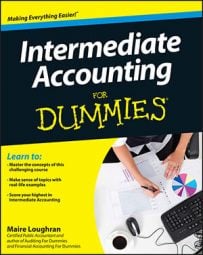A temporary difference eventually smoothes itself out over time, but permanent differences won’t ever be the same in terms of book versus tax. A permanent difference is an accounting transaction that the company reports for book purposes but that it can’t (and never will be able to) report for tax purposes.
Permanent differences arise because GAAP allows reporting for a particular transaction but the IRC does not. As with temporary differences, quite a few accounting events lead to a permanent difference.
Five common permanent differences are penalties and fines, meals and entertainment, life insurance proceeds, interest on municipal bonds, and the special dividends received deduction.
Penalties and fines. These expenses occur when a business breaks civil, criminal, or statutory law (and gets caught!). Say that a company breaks a local zoning ordinance or an employee gets a speeding ticket while driving the company car to conduct company business.
The company deducts any fines assessed against book income, but IRC 162(f) disallows a penalty/fine expense for tax purposes. The company never gets to reduce taxable income for the expense — thus a permanent difference between net and taxable income.
Meals and entertainment. Companies can expense 100 percent of the cost to provide business-related meals and entertainment that they incur in the normal course of business for book purposes. However, under IRC 274(n), for tax purposes, the business can expense, at most, only 50 percent of that same cost, unless certain exceptions apply. In taxes, as in life, there’s no free lunch.
Life insurance proceeds. If a corporation receives life insurance upon the death of an employee, it’s income for financial accounting but never for taxable income. As for the premiums paid for the life insurance on key employees, the company can expense them for book but not tax purposes.
Interest on municipal bonds. Municipal bonds are debt instruments a local government issues to fund a project, such as a new highway. Under GAAP, you add this income to net income. For federal tax, it’s generally never taxed (although this may not be true in some states). Likewise, any expenses incurred in obtaining tax-exempt income are deductible for book but not tax purposes.
Special dividend received deduction. Dividends a company receives from other businesses in which they have ownership are taxable at less than 100 percent, depending on the amount of ownership. For financial accounting purposes, you include all dividends a company receives as income.
For the dividend received deduction, if the company has less than 20 percent ownership in the other business, the company deducts 70 percent. For example, if the dividend is $100, the company reports only $30 as taxable income.
For 20 to 80 percent ownership, the business deducts 80 percent of the dividend. For more than 80 percent ownership, the company doesn’t report any of the dividend as taxable income.

